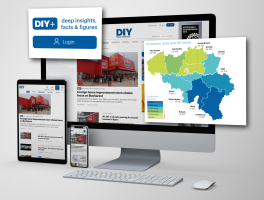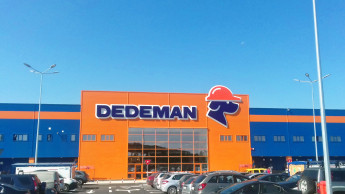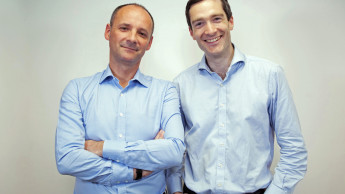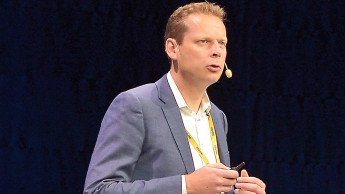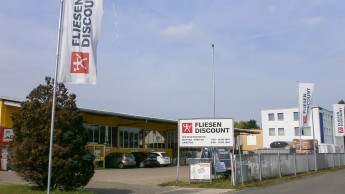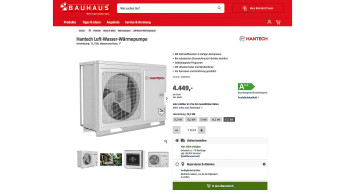
deep insights, facts & figures
02.03.2012
In the face of crisis the Austrians are putting their money into home and garden. To the benefit of the DIY stores
For a long time the retail sector was the factor providing the Austrian economy with stability. Now this sector, too, is slowly beginning to feel the effects of the crisis. Figures from KMU-Forschung show that sales went down by 0.1 per cent in the first five months of 2011. The fourth-biggest decline within the EU (-2.3 per cent) was recorded here in May. Consumers appear to be slightly at a loss and are hanging onto their money. Many sectors complain about the slowdown – and the DIY retailers are going against the negative trend, achieving an increase of 2.8 per cent. As a result of the crisis consumers are preferring to invest their money in long-term acquisitions rather than in short-lived goods. The fear of inflation is motivating consumers to spend their money sensibly instead of leaving it in the bank. Consequently home renovation and modernisation are popular, helped by diverse state subsidies that encourage this trend. A survey by Spectra at the beginning of 2011 revealed that one in two home owners in Austria is planning to renovate their property. The decisive factor: saving energy. Three-quarters are considering new exterior insulation and 68 per cent the replacement or renovation of their windows. Just under one-quarter intend to replace their central heating system. Altogether the prospects for retailing are not at all bad. As forecast by Regio-Data, Austrians’ real buying power is expected to rise in 2012. There are also favourable prospects for the DIY sector. According to a study from Marketagent.com, the DIY stores have the highest potential of any sector among web active consumers: one in five will definitely shop more in DIY stores over the coming months. However, a certain unresolved problem threatens from the internet. While the static trade is only seeing slight expansion, online trade is experiencing rapid growth. According to Regio-Data, the latter’s sales total for 2010 was € 7 bn – which is a 14 per cent increase on the previous year. On average Austrians spend € 830 on internet purchases per year, which means Europe’s top online shoppers are to be found in Austria. Some sectors are coming under pressure as a result of this situation. They include the DIY stores, since they are getting new competition from suppliers such as Amazon. Obi was the first to react with the opening of an online shop in the middle of the year. So far no other DIY retailer has followed suit. But catalogues are becoming increasingly popular, and current fliers can be downloaded. Bauhaus offers a 24-hour order service, though this functions only by phone, fax or email. To help customers navigate to the nearest Bauhaus the company also offers the relevant files for different GPS systems. Scarcely anything is available for consumers in the area of mobile apps. Hornbach offers an “Oh-Oh-App”, a purely fun app of no use to customers. Hornbach also offers a discussion forum and is the most actively involved in customer contact. Activities in the social media are gaining ground. Only a few DIY stores are making any use of the potential of a direct sales approach for the time being. With its new advertising campaign, “Hör auf deinen Baumax” (“Listen to your Baumax”), Baumax is also going for the social media and has nearly 9 000 fans on Facebook. Hornbach Austria, on the other hand, has only about 1 300 fans, while Lagerhaus has 3 600. Bauhaus communicates from Germany with over 6 000 fans. The Austria report from the GfK/EDRA shows significant changes in the product ranges in 2010 compared with the previous year: plumbing/heating +5.4 per cent, wallpaper/floor coverings/interior decoration +4.9 per cent, tiling +3.4 per cent, building materials and chemicals +2.4 per cent and leisure/hobby/DIY -3.2 per cent (all figures unadjusted). The boom in garden design is petering out, according to Kreutzer & Fischer’s “Branchenradar”. Although sales in 2010 grew by 1.45 per cent year-on-year, it is now believed that 70 per cent of this growth can be put down to price increases and only 30 per cent to demand. The product categories of tools, pond technology, irrigation and surface stabilization are stagnating. By contrast, the product category of plants saw growth of 2.3 per cent. Sales in the private landscape gardening sector achieved € 357.8 mio in 2010, compared with € 352.9 mio in 2009. The EDRA Report 2010 reveals that live plants in the DIY and home improvement stores even notched up growth of 4.8 per cent. Garden hardware expanded by 6.5 per cent – in the previous year as well. Garden furniture and decoration, including outdoor barbecues and accessories, also rose by two per cent, contrasting with 3.8 per cent the year before. Which means that there can be no talk of stagnation in the garden market overall, since the increase is appreciably higher than the previous year (+0.8 per cent 2009:2008). Altogether the garden sector, according to EDRA, now accounts for a 20 per cent share of the sales volume of the DIY and home improvement stores. DIY stores in Austria Obi, a German DIY retailer, is catching up through new openings in Graz and Erdberg, Vienna. In 2010 Obi acquired the imo Markt GmbH, Austria’s biggest franchisee. This brought the franchisor nine further stores, which it now operates as corporate outlets. The company’s online shop is a new sales channel. The RWA Lagerhaus stores of Baywa, the German Raiffeisen cooperative organisation, was able to report a clear +3.7 per cent profit on sales. Hagebau Austria achieved a sales increase of 2.6 per cent in 2010. This is being attributed mainly to the group’s new “aussenRaum” concept, a package of services covering all aspects of garden design. The expectation was for an increase of between 3 and 3.5 per cent in 2011. The company has been merged into the German parent company Hagebau in Soltau since 2012. After Quester this represents the addition of yet another company to Hagebau Soltau. Market leader Baumax operates 67 stores in Austria, generated a sales increase of seven per cent in 2010 and further augmented its predominance through the addition of two megastores in Upper Austria. Meanwhile it has drive-in areas of 4 000 m² in Austria. Joinery and timber cutting to order are now included in the service offer. Baumax achieves some ten per cent of sales through its “Haus-Profis” service, an organisation of 350 skilled tradesmen from all over Austria who cooperate with the company to offer installation services. They appeal to consumers who are either unwilling or unable to take a project in hand themselves. The company’s target is for one-quarter of its sales to stem from these customers within five years. It is planning further projects in the areas of garden planning, pools, irrigation systems and shade products. Bauhaus, a German company, is building a new specialist centre over 18 000 m² in size and with a drive-in area of 5 000 m² in Seiersberg, Graz. This also features a “bathroom world” with 3-D planning and skilled tradesmen to do the installation work. Yet another feature is the “Stadtgarten”, which offers urban customers everything to do with gardening. The “Stadtgarten” concept is much smaller than a traditional garden centre. The company also targets women customers as a group through its “Women’s Days”, which aim to teach them how to do-it-themselves. Hornbach, also from Germany, built no new stores in 2010 or 2011. It is not planning any new openings for Austria in 2012 either. In June Hellweg, yet another German operator, opened a DIY store in Austria again after 14 years and has announced a programme of cautious expansion for the coming years.
Related articles
Read also

 Menü
Menü




